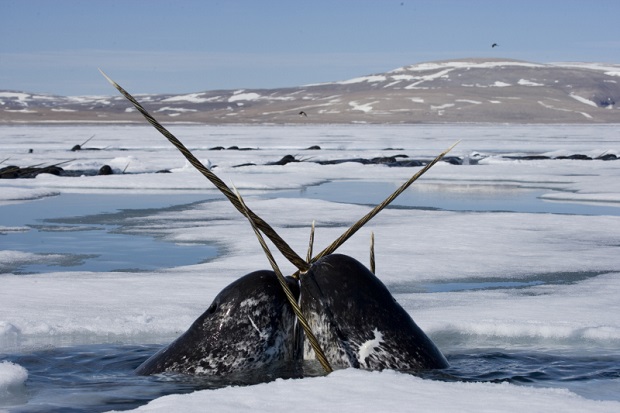Conservation efforts in the Canadian Arctic will be obstructed and sensitive marine ecosystems will be endangered if oil and gas exploration is allowed to continue in the area, according to a lawsuit filed by the World Wildlife Fund-Canada which seeks block the renewal of the permit of Shell Canada to operate in Lancaster Sound.
WWF-Canada, which is represented by lawyers of the Canadian non-profit environmental legal group, Ecojustice, contends that the permit held by Shell to operate in the area was issued 40 years ago and is “expired and therefore invalid.”
“Documents in a federal registry of oil and gas permits indicate that the permits, first granted in 1971, should have expired long ago,” said WFF-Canada in a statement. “These permits are an obstacle to the finalizations of the long-awaited Lancaster Sound National Marine Conservation Area.
RELATED CONTENT
Report calls for Inuit involvement in managing Arctic shipping traffic
“We need to ensure quality protections for regions with the most biodiverse and vulnerable ecosystems, such as Lancaster Sound,” said David Miller, president and CEO of WFF.
Lancaster Sound is one of the richest marine mammal areas on earth and is home to narwhals, belugas, bowhead whales, ringed seals, harp seals and walruses, according to WFF-Canada. The area also harbours one of the highest densities of polar bears in the Canadian Arctic and provides important breeding and feeding habitat for seabirds, including thick-billed murres, black-legged kittiwakes, ivory gulls and northern fulmars.
The proposed National Marine Conservation Area has been under consideration by the federal government since the early 1970s and was initiated in response to an exploratory oil well proposal.
- Twenty per cent of the Canadian beluga whale population migrates through the area each year on their way to their summering grounds.
- 70,000 narwhals, three-quarters of the global population, return often to their favourite locations within the area.
- There are six critically important bird areas that surround it.
- It’s at the southern edge of the Last Ice Area, the only Arctic region expected to retain its summer sea ice until 2050, making it a critically important zone for the future of ice-dependent life.
“The federal government must take active steps to protect the Arctic ecosystem from dangerous, disruptive fossil fuel exploration instead of standing on the sidelines,” according to Ian Miron, an Ecojustice lawyer. “Under the law, exploration permits do not stay valid forever, and it’s time the government recognizes that Shell’s permits are well past their expiration date.”
The conservation organization is asking the court to confirm the expiry of the Shell permits for operating on the border of the proposed Lancaster Sound National Marine Conservation Area. WFF-Canada also wants the court to order an update of the registry records under the Canada Petroleum Resources Act to indicate the expiry of those permits.
“In the past, the federal government bureaucracy has relied on these expired permits to propose narrower boundaries for the Lancaster Sound National Marine Conservation Area, over objections from Inuit communities,” said Paul Crowley, WWF-Canada’s vice-president of Arctic conservation. “So long as these permits are allowed to stand, they will continue to obstruct efforts to ensure Lancaster Sound’s ecosystems and wildlife get the protection they need.”

